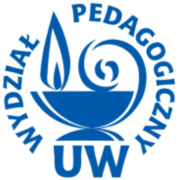PUBLICATION ETHICS
The “Education Research Quarterly” operates in accordance with national and international regulations and publishing standards, with a particular focus on ethical behavior and good practices of academic culture.
All manuscripts submitted to the “Education Research Quarterly” are checked for compliance with the ethical standards of publication, as well as for their reliability and scientific value.
Below we present the ethical principles for all parties involved in publishing in the “Education Research Quarterly” (“Kwartalnik Pedagogiczny”). The principles are based on the recommendations of the COPE (the Committee on Publication Ethics) association, which were included in the document The Core Practices: https://publicationethics.org/core-practices
Useful COPE links:
https://publicationethics.org/resources
https://publicationethics.org/files/Code_of_conduct_for_journal_editors_Mar11.pdf
PUBLICATION ETHICS PRINCIPLES
The fair play principle: Articles submitted for publication in the “Education Research Quarterly” are assessed in terms of content, reliability, relevance to the journal’s profile, compliance with ethical standards, and application for science purposes, regardless of the author’s gender, race, sexual orientation, nationality, religion, and political views.
The originality of work principle: Texts sent to the journal must be original and unpublished. Each text is verified by the anti-plagiarism system https://crosscheck.ithenticate.com/en_us/login
The authorship principle: The Editorial Board makes every effort to eliminate any scientific misconduct in the publication process, such as ghostwriting and guest- or gift authorship.
Ghostwriting is when someone has made a significant contribution to the publication, but has not been mentioned as one of the authors, or is not included in the acknowledgments contained in the publication. Therefore, the editorial board asks for information on the co-authors of the research, the results of which are discussed in the article, as well as for the information about every author’s contribution to the research results obtained.
Guest or gift authorship is when one’s participation in the creation of the text was negligible or did not take place at all, and yet the person is named the author or co-author of the publication.
The author or authors may be asked to submit a declaration on the publication’s sources of financing, contribution from research institutions or associations, and other entities (financial disclosure).
Scientific integrity principle: In the case of suspicion of malpractice, e.g. ghostwriting, guest or gift authorship, or plagiarism, the editor takes the following steps: contacts the author for an explanation, gathers documentation, checks the text using an anti-plagiarism program. The editor-in-chief may inform about the situation the author’s superiors and/or persons responsible for research management in the institution in which he or she works.
Principle of counteracting conflicts of interest: It is required to include information about the contribution of individual authors to the creation of the publication, about the sources of financing of the publication, about the contribution of research institutions, associations, and other entities, as well as all relevant information about a conflict of interest that may have influenced the results research or their interpretation.
Withdrawal of the text: Editors may decide to withdraw the published text in the event of:
- the lack of credibility of the research results,
- earlier publication of the work elsewhere,
- committing plagiarism,
- violation of ethical standards.
The author will be informed about the text withdrawal. The information will include the title and author’s name and an explanation of the reasons for the editorial decision. Withdrawn text will not be removed from the journal’s archives and its status will be marked.
